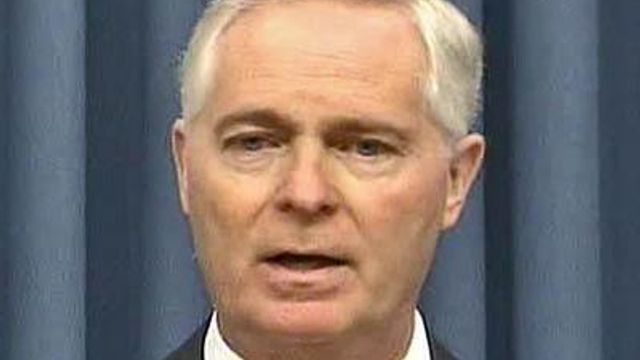State News
Senate mulling education changes to House budget
The House didn't do enough to improve education in North Carolina during uncertain economic times, Senate leaders said Thursday as they received the other chamber's budget proposal, which received strong bipartisan support.
Posted — UpdatedRALEIGH, N.C. — The House didn't do enough to improve education in North Carolina during uncertain economic times, Senate leaders said Thursday as they received the other chamber's budget proposal, which received strong bipartisan support.
The response of Senate Democrats should console fellow party member Gov. Mike Easley, who panned the House's $21.3 billion plan before it passed by wide margins Wednesday and Thursday. Easley said it retreated on teacher pay, preschool and university enrollment.
"The message of how you move North Carolina (forward) is really not in the House budget, and we're going to have to look at that very carefully," said Sen. Linda Garrou, D-Forsyth, one of the Senate's chief budget-writers.
The House voted 104-10 in favor of the budget, with a majority of Republicans backing the spending plan for the second time in as many days following debate that had little partisan rancor.
"This is one of the best budgets we've ever brought forward," said Rep. Curtis Blackwood of Union County, one of the few Republicans to oppose the measure.
The bill included no new taxes, would raise year-to-year spending by just 3.3 percent, give 3 percent raises to teachers and begin the phase-out of a controversial transportation fund transfer.
It was the largest number of 'yes' votes for the House's own budget proposal since 100 votes in 2004, during the co-speakership of Democrat Jim Black and Republican Richard Morgan.
"This was an historic vote. I hope the governor sees the numbers," said Rep. Mickey Michaux, D-Durham, senior co-chairman of the House Appropriations Committee.
Easley, facing his final test with the Democratic-led General Assembly before leaving office in January, had said Tuesday he was puzzled by House leaders for "stiffing the teachers." His office declined further comment Thursday.
Garrou said senators, who want to pass their own version of the budget within two weeks, will be looking for cost savings to try to beef up areas that Easley said were lacking. Targets may include $46 million in planning funds for construction of university and state buildings or $15 million in dropout prevention grants, both in the House budget.
House and Senate Democrats ultimately will negotiate a compromise measure that they hope will reach Easley's desk before July 1 and that he would be willing to sign into law.
"Maybe some projects in the budget that the House has that we're not going to be able to do," she said. "We're going to say it's more important to provide for the teachers and provide for children entering school."
The House gave $14 million to teach several thousand additional students entering the University of North Carolina system this fall, but Easley and UNC officials said $20 million more were needed.
Easley's signature More at Four preschool program, which has been the focus on negotiations for several years, received about half of the $45 million the governor wanted.
Senators also want to raise teacher salaries beyond 3 percent, but they acknowledged they may be hard pressed to reach the nearly 7 percent salaries Easley said are needed to keep a promise to exceed the national average during the next school year.
Easley suggested raising taxes to pay for it, but Senate Democrats aren't interested in that during an election year.
"It's certainly something we'd like to do," said Senate Majority Leader Tony Rand, D-Cumberland. "However, we are constrained by the economic conditions and whether we'll be able to do it or not, we're just not sure at this point."
Without additional taxes, House Democrats were left with roughly $500 million in new money with which to spend. They found more money in part by spending $167 million less than projected within the Department of Health and Human Services.
"I think it's a budget that fits the economic times," said House Speaker Joe Hackney, D-Orange.
Senate Minority Leader Phil Berger, R-Rockingham, also said.
Copyright 2024 by WRAL.com and the Associated Press. All rights reserved. This material may not be published, broadcast, rewritten or redistributed.





